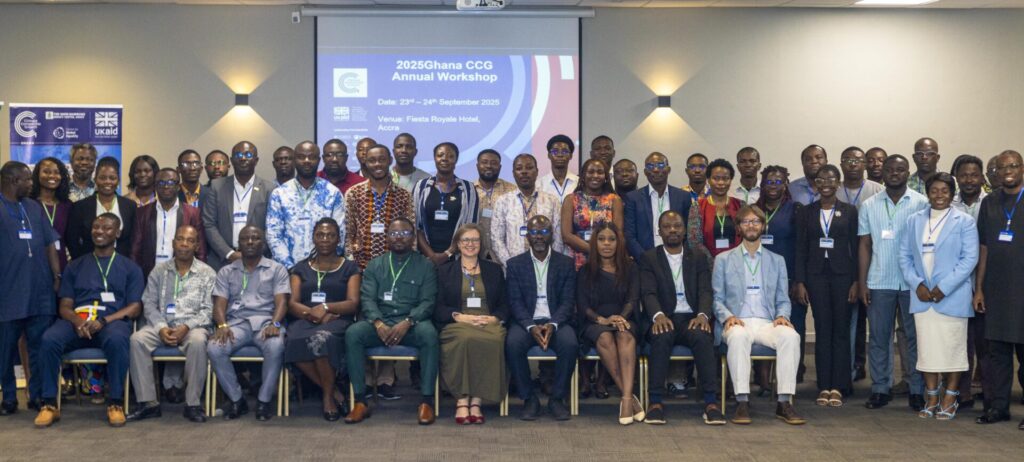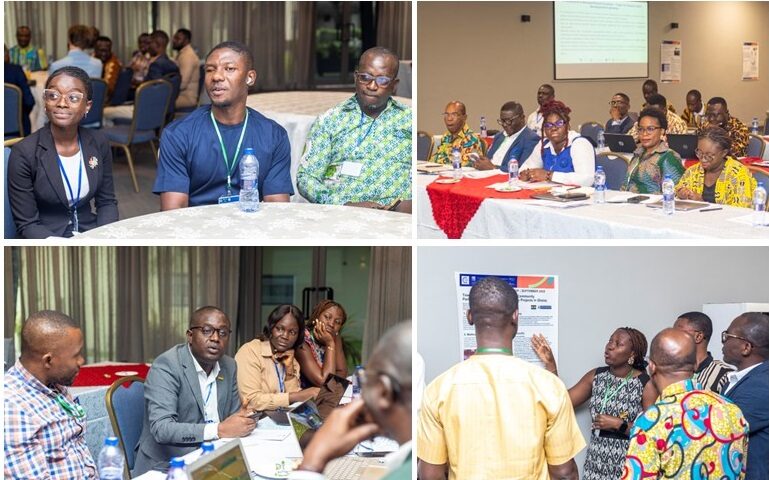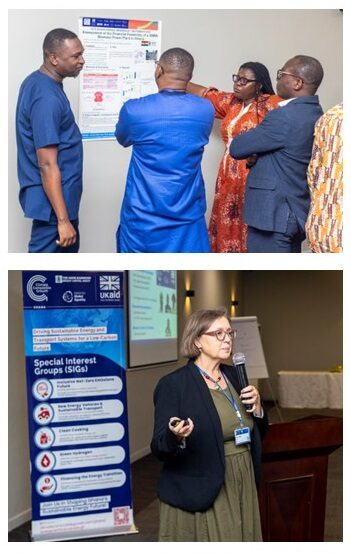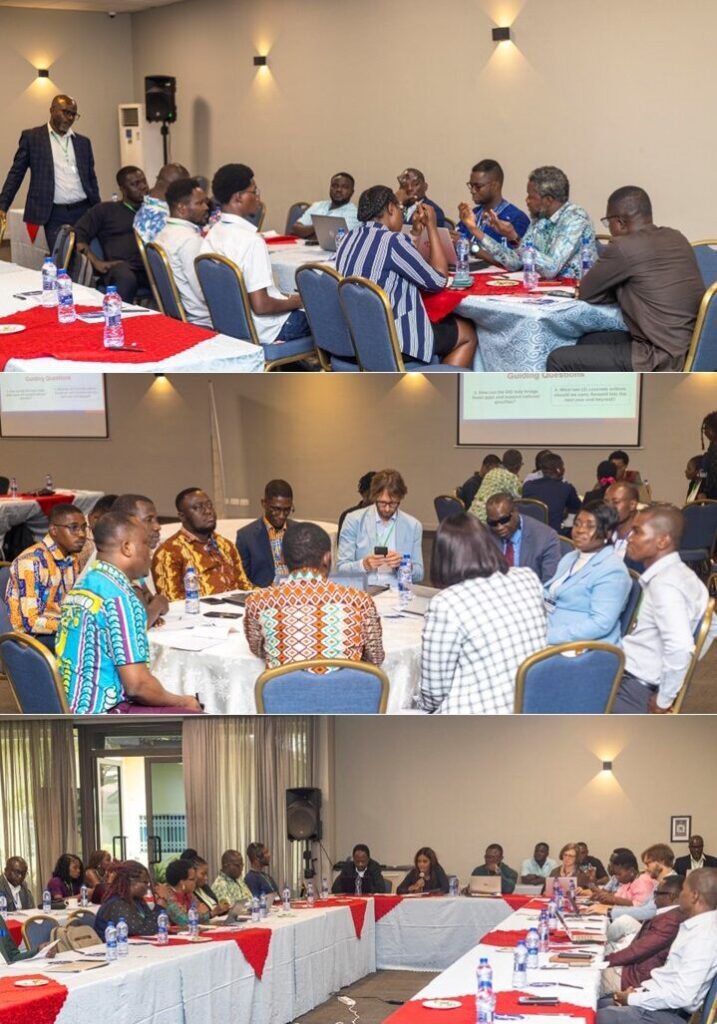Overview
The Ghana Climate Compatible Growth (CCG) Network convened its 2025 Annual Workshop at the Fiesta Royale Hotel in Accra on 23rd – 24th September 2025. The workshop brought together policymakers, academia, private sector leaders, and international partners to share insights, showcase research, and collaborate on Ghana’s decarbonization and sustainable energy agenda.
The two-day event highlighted evidence-based approaches for a just energy transition, promoted stakeholder collaboration, and explored innovative solutions for sustainable energy, green hydrogen, clean cooking, and transport electrification in Ghana.

Day 1 Highlights (23 September 2025)
Opening and Welcome Ceremony
- Prof. David Ato Quansah (Director, Brew-Hammond Energy Centre, KNUST) emphasized Africa’s urgent energy transition and the importance of leveraging university expertise for actionable solutions.
- Dr. Robert Sogbadji (Ministry of Energy and Green Transition) highlighted Ghana’s green hydrogen potential and its alignment with the country’s Paris Agreement commitments.
- Dr. Lara Allen (CGE & University of Cambridge) stressed the value of evidence-based research for guiding decision-making.
- Nana Frimpomaa Arhin (rep of the British High Commission) underscored the role of innovation-driven partnerships between research, government, private sector, and civil society.
- Koen Van Dam gave an opening remark and a recap of day 1 session, setting the tone for engagements on day 2.


Plenary Sessions and CCG Projects Updates
- Prof. Francis Kemausuor (KNUST) provided updates on the CCG Ghana Network.
- Prof. Joseph Akowuah (KNUST) highlighted the activities and the achievements of the five Special Interest Group (SIG) since inception.
- Dennis Asare (IMANI) presented on financing the energy transition.
- Prof. David Ato Quansah discussed community participation models in renewable energy projects for a just energy transition.
- Dr. Gerald Arhin (UCL) introduced the CCG Political Economy Unit toolkit.
- Dr. Yen Sokama-Neuyam (KNUST) presented on Ghana’s emission tracking and reduction initiatives.
Breakout Sessions
Dr Chinagorom Ajike, the Country Programme Manager, CCG, set the tone for the breakout session by highlighting the purpose of the session to include deepening thematic discussions, connecting research with policy and practice and identifying priorities and pathways forward.
The session focused on the five SIGs with guiding questions such as the progress made within the SIGs, identifying gaps and articulating what concrete actions that can be carried forward by the SIGs and the Ghana CCG Network into the next year and beyond.
Day 2 Highlights (24 September 2025)

Morning Plenary
- Samuel Bekoe (CEDA) presented developments in electric 2- and 3-wheelers in Ghana which is the focus of an on-going FRF project.
- Dr. Akwasi Adu-Poku (ARUA-CD, KNUST) discussed inequality and climate governance challenges.
- Dr. Joseph Essandoh-Yeddu (UCC) provided updates on climate action progress in Ghana.
- Prof. Eric Ofosu (UENR) explored energy access challenges in remote communities which is an offshoot of a previously funded FRF project.
- Dr. Emmanuel Marfo (Climate Parliament) highlighted the potential of community green energy zones.
- Mark Amoah Nyasapoh (GAEC) presented nuclear-renewable hybrid energy systems for sustainable development.
- Poster presentations by postgraduate students and early career researchers within the Network showcased innovative energy and transport solutions.
Panel Discussion and Closing
- Dr. Patrick Boakye (KNUST) moderated a panel on green hydrogen development in Ghana, featuring perspectives from government, academia, and industry. The panel include Alfred Dawson, Don Bosco and Koen Van Dam representing CCG.
- Dr. Chinagorom Ajike provided closing remarks at the event with reflections on the network’s achievements and future directions, emphasizing collaboration to achieve CCG’s objectives and Ghana’s climate ambitions.

Key Takeaways
- Collaboration is Critical: Cross-sector engagement remains essential to drive Ghana’s net zero emission agenda in an inclusive and mutual beneficial manner.
- Evidence-Based Policy: Robust research data is central to effective policymaking and planning.
- Innovation & Green Technology: Scaling green hydrogen, hybrid energy systems, and electric mobility solutions is vital for sustainable energy transitions.
- Forward-Looking Agenda: The Ghana CCG Network continues to provide a platform for dialogue, knowledge exchange, and actionable solutions for climate-compatible growth.
